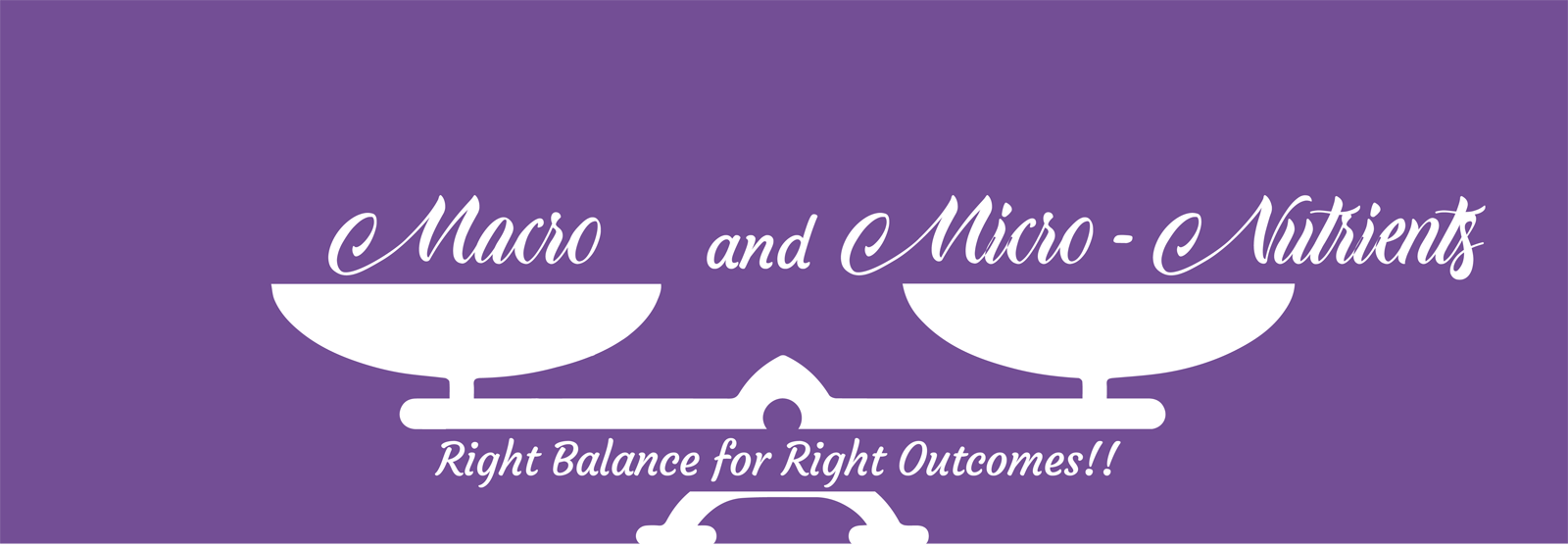
Optimum nutritional status of expectant mothers is vital for their own health, as well as of their babies. Maternal malnutrition can lead to many adverse pregnancy outcomes. An optimal macro and micro – nutrient intake by expectant as well as new Moms, is essential to fulfil maternal, foetal and infantile needs. Proper nutrition reduces health complications, such as Intra-Uterine Growth Retardation (IUGR) during pregnancy and baby’s low birth weight after delivery, etc.
Impact of Macro and Micro – Nutrient Deficiencies
Maternity and foetal outcomes are highly dependent on appropriate intake of macro and micro – nutrients.
Malnutrition has been usually recognised as protein-energy malnutrition, that occurs especially during foetal and infantile growth spurts.
Additionally, several other micronutrients are also of high importance during these developmental stages.
Energy and Protein
Energy intake is one of the leading influencers of weight gain during pregnancy. Extra calories are required during pregnancy for the growing baby as well as for the regulation of placental and maternal tissues. Caloric intake during pregnancy affects mother’s weight gain and the baby’s birth weight and built. Protein intake is also highly critical for positive pregnancy outcomes & healthy growth and development of the baby.
A balanced protein & energy intake during pregnancy prevents risk of Small-for-Gestational-Age (SGA) infants, particularly in undernourished pregnant women. Protein demands should be fulfilled by including protein rich dietary sources, such as milk and dairy products, egg, fish, chicken, soybean, pulses, legumes and nuts along with protein supplements based on Whey Protein Isolate.
Fat:
Visible fat (fat added in food preparation) requirement of non-pregnant, non-lactating, sedentary female is 20g/day, which increases by 50% (i.e. 30gm of fat) during pregnancy. This is needed to fulfil the increased energy demand and to support desired weight gain, in order to prepare mother’s body for labour & lactation.
DHA:
Supports major part of gestational period, complements healthy birth weight and foetal brain development, further it also prevents preterm delivery and maternal post-partum depression
Iron:
During pregnancy optimal iron intake is critical for foetal growth and development. Mostly, Indian women are deficient in iron, or they are highly vulnerable to develop Iron Deficiency Anaemia (IDA). Children born to iron deficient mothers are more likely to have low iron stores, impaired physical and cognitive function & sub-optimal immune system. Maternal anaemia is also associated with greater risk of preterm birth and low birth weight of intant.
Vegetarians are more at risk of developing IDA. Iron fortified foods, whole grains, pistachio, black current, whole pulses, drumsticks, cauliflower greens, jaggery and dates are few vegetarian iron sources, which should be consumed abundantly. Egg yolk, meat and poultry are good choices to include as iron sources for non-vegetarian pregnant and lactating women.
Vitamin A:
Vitamin A deficiency (VAD) may affect various vital functions in pregnant women as well as in infants. Vitamin A demands are higher throughout the pregnancy & lactation period. VAD is more common in the third trimester of pregnancy and may lead to maternal night blindness. Vitamin A is available in abundance in orange, yellow and green coloured vegetables, fruits, egg yolk and dairy products.
Zinc:
Zinc requirement increases during pregnancy and lactation, and maternal zinc deficiency can have harmful effects on the offspring. Low dietary intake is the main cause for zinc deficiency in pregnant women and increases the risks of low birth weight and small-for-gestational-age (SGA) infants. Dietary sources of zinc are flax seeds, watermelon seeds, pumpkin seeds, kidney beans, seafood (lobsters, shrimp and oysters), egg and poultry.
Iodine
Iodine deficiency during pregnancy affects foetal development, impacting the intelligence quotient of the progeny. The increased requirements during pregnancy and lactation should be met through fortified foods and supplements.
Folate and Vitamin B12
Vitamin B12 and folate are essential micronutrients for the development and formation of the embryo. During pregnancy & lactation requirement of these micro – nutrient increases. Low maternal folate levels are associated with low birth weight, low placental weight, neural tube defects, increased risk of small-for-gestational-age (SGA), and premature babies. Rich dietary sources of folate are chicken, spinach, cluster beans, egg, curd, lentils, broccoli and orange.
Dietary vitamin B12 is usually stored in the liver that is why its deficiency develops only after long duration of inadequate intake or malabsorption disorders. As animal foods are primary source of vitamin B12, vegetarian women are at higher risk of vitamin B12 deficiency. Vitamin B12 is available in meat, chicken, egg, curd, fortified breakfast cereals and fermented food items such as tempeh and miso.
Vitamin D and Calcium
Vitamin D is critical to maintain bone density, strong immunity & regulation of blood glucose. During pregnancy the growing foetus is totally dependent on maternal vitamin D stores, for it’s growth and development. Low vitamin D intake or its deficiency may lead to pre-eclampsia, higher incidence of gestational diabetes, risk of low birth weight, and Small-for-Gestational-Age (SGA) infants.
The human body produces Vitamin D through sunlight exposure, when sun rays interact with skin. Food items such as dairy products and fortified oil, for non-vegetarians, fish and egg yolk are good sources of Vitamin D.
However, with increasing urban and indoor lifestyle, exposure to sunlight has become minimal. Indian habits of boiling milk & high-temperature cooking before consumption, further hampers the natural Vitamin D availability, which calls for requirement of supplements.
Calcium is essential for maintenance of vascular function, muscle contraction, nerve transmission, & glandular secretion of hormones. During pregnancy, calcium demand increases as calcium is mobilized from maternal skeleton for foetal growth & development. Low calcium intake during pregnancy may cause improper development of foetal bones, preeclampsia or neonatal mortality, as well as depletion of mothers’ bone density.
Rich dietary sources of calcium are milk, cheese, fish, green leafy vegetables, ragi, kidney beans & almonds.
Maternal & foetal outcomes are highly dependent on the intake of both macro- and micro – nutrients. Maternal malnutrition is common due to inadequate nutrient intake. In addition to the traditional reasons for poor maternal nutritional status, like early and multiple pregnancies with low time gaps, poverty, gender inequality etc, we are now seeing urban, affluent-malnutrition resulting from poor eating and sleep habits and sedentary lifestyles. Balanced dietary intake, adequate supplementation and proper planning is the key to meet all the nutritional needs and to get best pregnancy and foetal outcomes!!

© 2020 CHPL I All right reserved
© 2020 CHPL I All right reserved